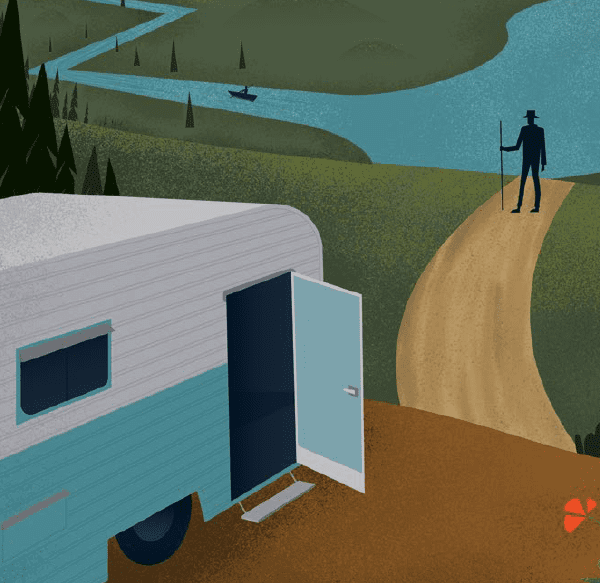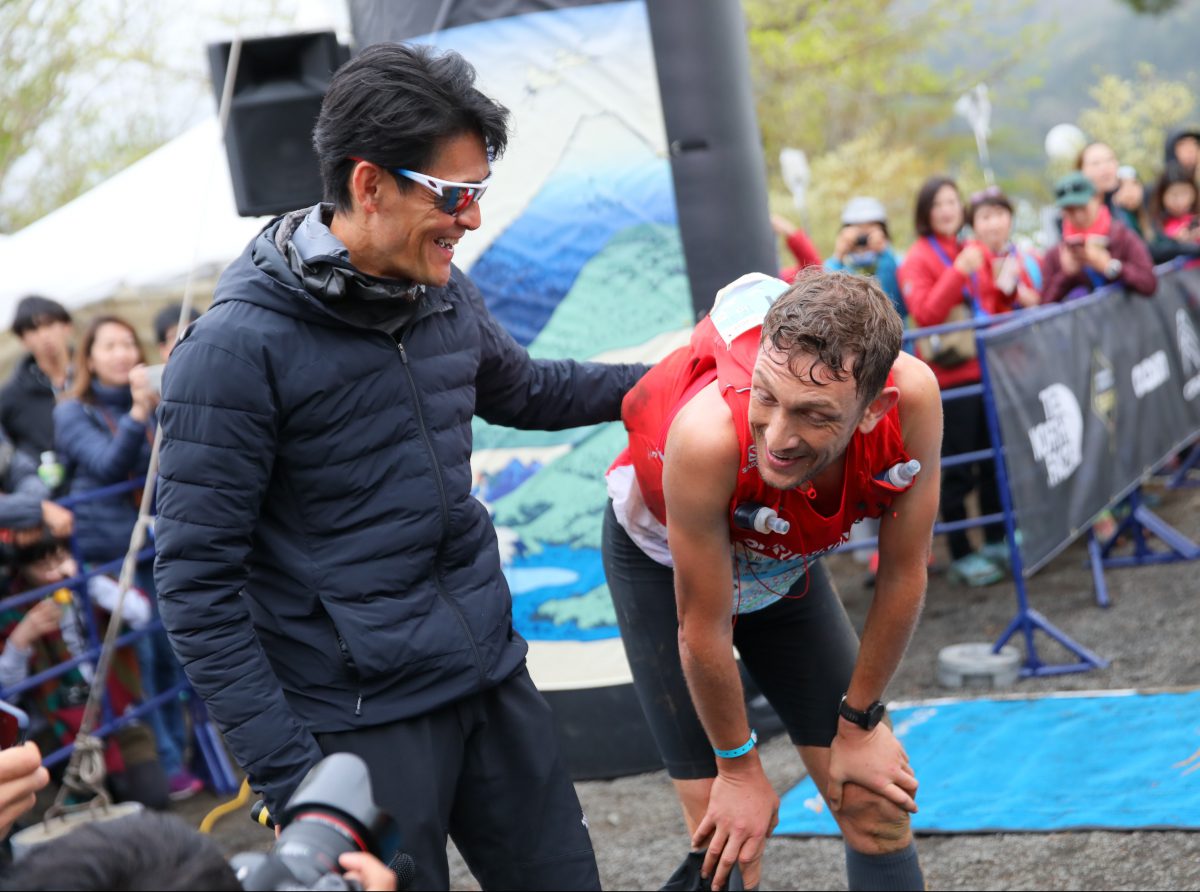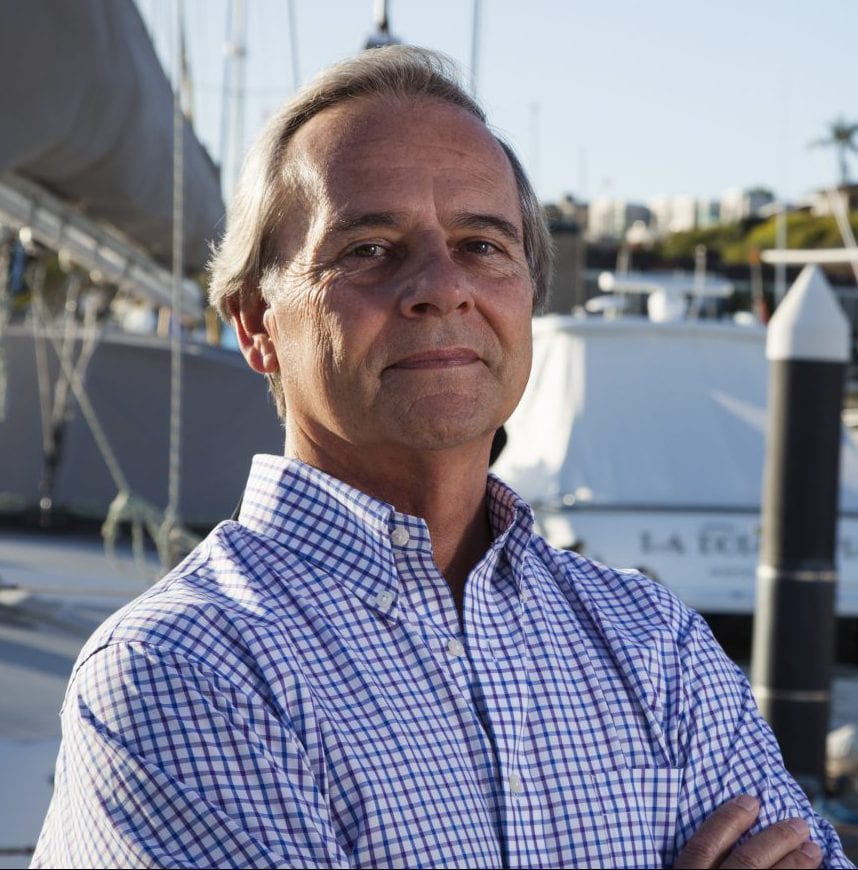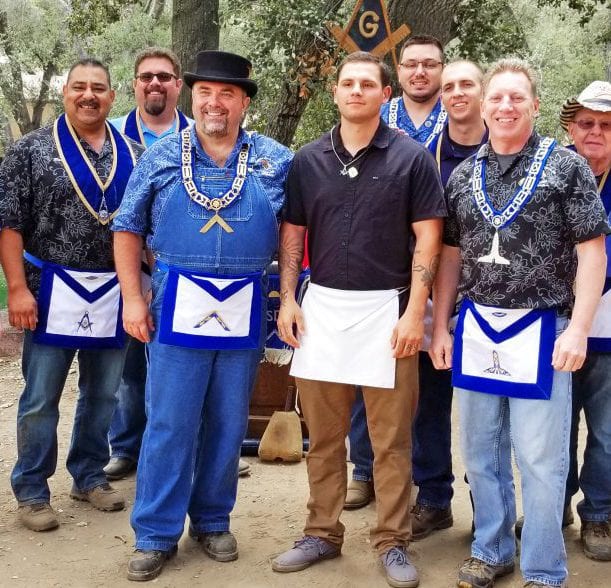
Have Craft, Will Travel
How a gift from one Mason to another launched a fellowship of camping enthusiasts.
By Ian A. Stewart
For most of the past year, Loren Newman’s morning routine was set: Wake up at 5 a.m., lace up his sneakers, and head out for an early jog. The big difference between Newman and millions of other weekend warriors was that his jog was up and down a 1,000-foot-high mountain. Five times. Then come home, scarf down a big breakfast, and head off to work.
 To call Newman, a Master Mason since 2009 with San Francisco’s Prometheus Lodge No. 851, an avid runner is a disservice: As an ultramarathoner, he competes in 50 and 100-mile trail runs—physically grueling endurance challenges that can take up to 24 hours and that are as much exercises in mental determination as they are tests of strength and form. In his most recent race, a bonkers 103-mile trek around the base of Mount Fuji in Japan, he finished an incredible third out of a field of 2,663, which included several professional runners. (His time was 20:40:14.) Training alone constitutes as much as three hours a day during the workweek—and that’s only because he’s had a 9-to-5 job to keep. On weekends, it’s even longer, up to 30-mile runs or sometimes 20 in the morning, and another 20 at night. Just to maintain his weight and satiate his hunger, he has to inhale 4,000 calories a day. “If I’m out on a date, I try to explain that this is one of my hobbies in a non-scary way,” he says with a laugh, “It’s hard to present it in a normal light.”
To call Newman, a Master Mason since 2009 with San Francisco’s Prometheus Lodge No. 851, an avid runner is a disservice: As an ultramarathoner, he competes in 50 and 100-mile trail runs—physically grueling endurance challenges that can take up to 24 hours and that are as much exercises in mental determination as they are tests of strength and form. In his most recent race, a bonkers 103-mile trek around the base of Mount Fuji in Japan, he finished an incredible third out of a field of 2,663, which included several professional runners. (His time was 20:40:14.) Training alone constitutes as much as three hours a day during the workweek—and that’s only because he’s had a 9-to-5 job to keep. On weekends, it’s even longer, up to 30-mile runs or sometimes 20 in the morning, and another 20 at night. Just to maintain his weight and satiate his hunger, he has to inhale 4,000 calories a day. “If I’m out on a date, I try to explain that this is one of my hobbies in a non-scary way,” he says with a laugh, “It’s hard to present it in a normal light.”
But for Newman, the idea of normalcy is graded on a curve. “There’s a reality-distortion field, for sure,” he says of life as an ultrarunner. But once you’re able to find your “forever pace”—the speed at which you can run almost indefinitely—even crazy-seeming distances become possible. Newman has taken the same sort of jump-and-the-net-will-appear attitude to his personal and professional life, recently completing a three-year stint working with the Chinese internet search giant Alibaba at its headquarters in Hangzhou—a “midsize” Chinese city of 6 million, he jokes.
But for the Napa native, who has plans to write a book about his business experience in China, approaching everything as part of a grand adventure is the whole point. “Let’s do something unknown and a little crazy,” he says. “And yeah, there’s fear and anticipation, but that’s what’s so fun and interesting about life.”
That search for new experiences also led Newman to Masonry, where he says he’s discovered not only camaraderie but also a conduit for self-reflection that echoes the meditative state he finds out on the trail 50 miles into a century run. “There’s a saying in ultramarathons,” Newman says: “If you want to clear your mind, go for a run. If you want to distill your soul, run 100 miles.”
p.p1 {margin: 0.0px 0.0px 0.0px 0.0px; font: 12.0px Times; min-height: 14.0px}
p.p2 {margin: 0.0px 0.0px 0.0px 0.0px; text-align: justify; line-height: 9.3px; font: 9.0px Times}

How a gift from one Mason to another launched a fellowship of camping enthusiasts.

Bill Prentiss learned an important lesson in business: The greatest gift is in paying it forward.

Once a year, the Temecula Catalina Island Lodge heads for the hills.